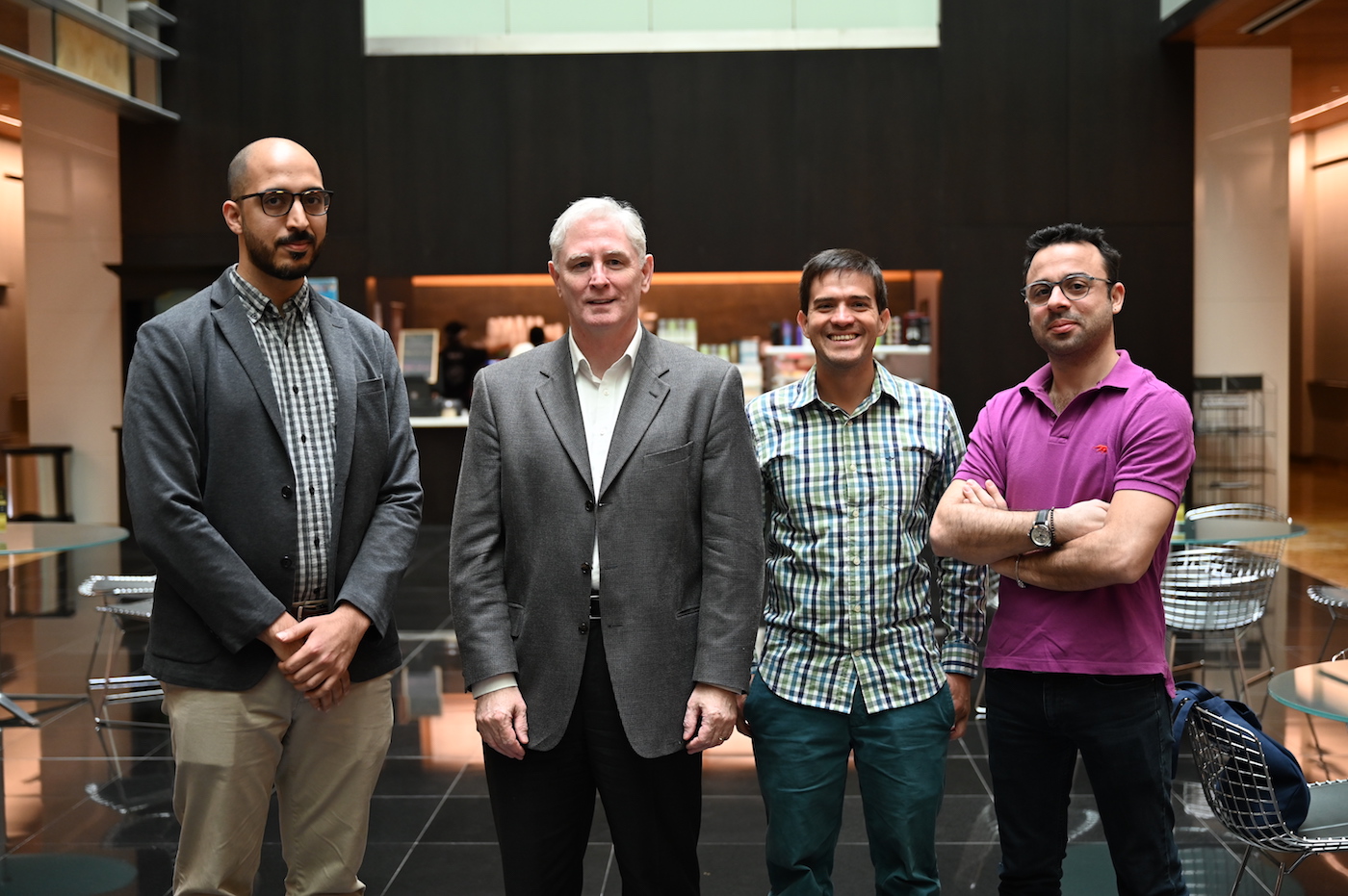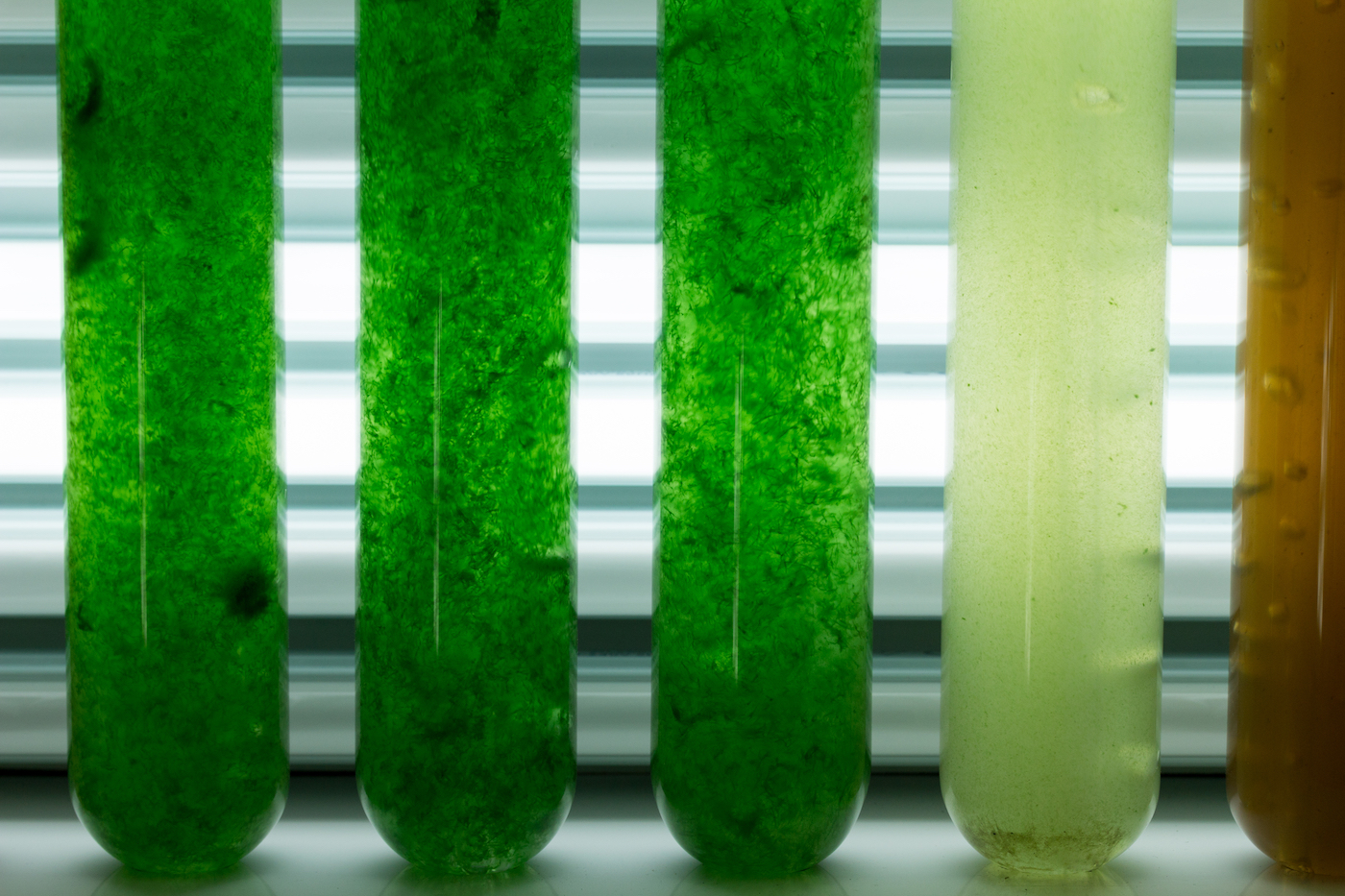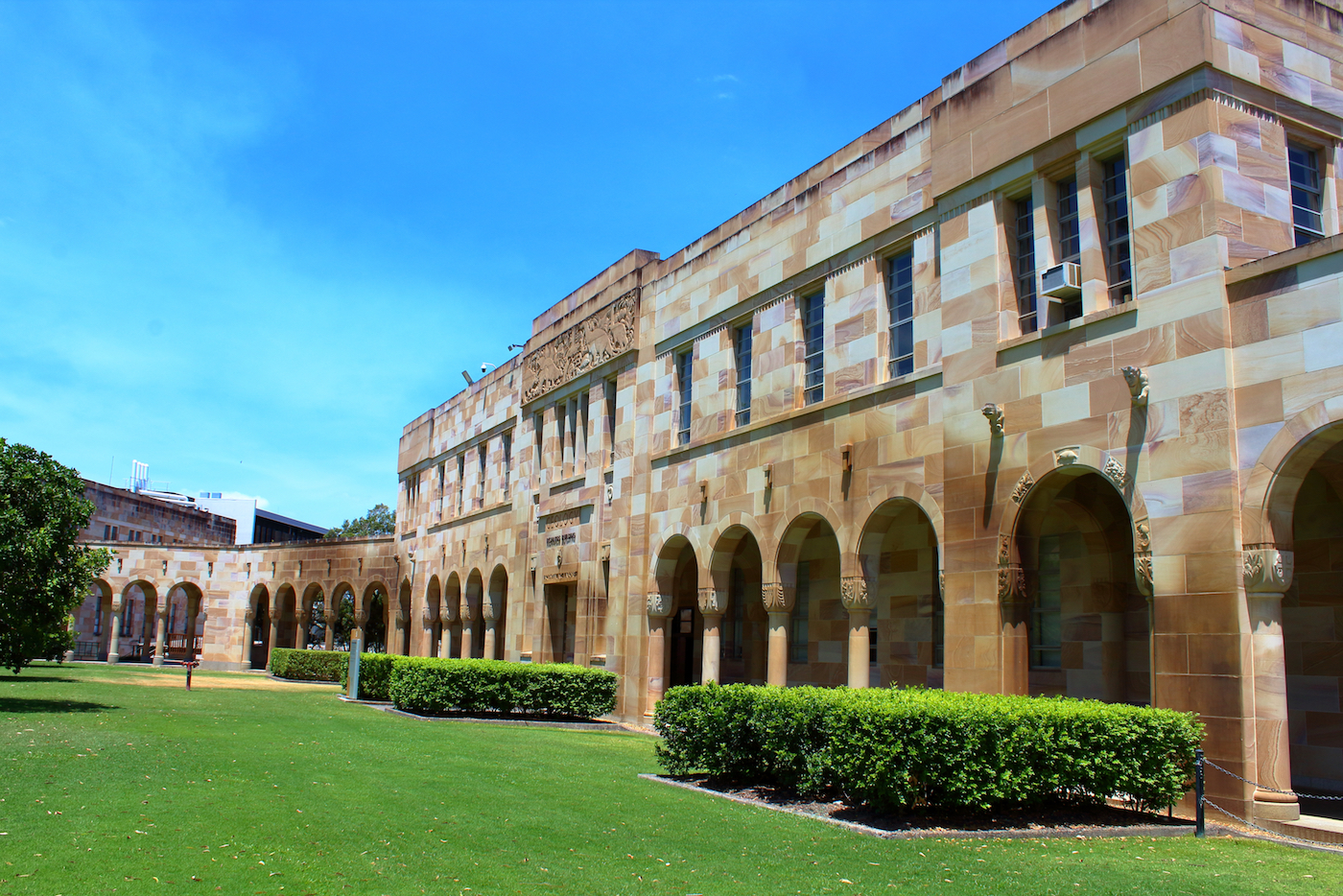A love of scientific adventure

Alumnus Eduardo Gorron (second from right) stands with (from left to right) alumnus Faisal Nawab; Professor Brian Moran, KAUST dean of graduate affairs; and alumnus Dimitrios Kleftogiannis during a visit to campus as part of the 2020 Winter Enrichment Program. Photo by Hugh Gyetvai.
-By Catherine Owen, Alumni Affairs
Microbiologist and KAUST alumnus Eduardo Gorron believes in the importance of new experiences. Recruited in 2010 to join the University as part of its second cohort of students, Gorron completed his KAUST master's degree in chemical and biological engineering in 2012.
"A KAUST delegation visited my undergraduate university in Colombia in 2010, and at the end of their presentation, I discovered I was the only one with the GPA they wanted," Gorron said. "I had only left my home country a couple of times before joining KAUST, but I love adventure."
Studying microalgae
After graduating from the University, Gorron joined the Saudi Basic Industries Corporation (SABIC) at its office on the KAUST campus. His work there focused on microalgae and brine from seawater. The region's many desalination plants extract salt from seawater, resulting in a leftover super concentrated brine that is usually thrown back into the ocean.

While working at the Saudi Basic Industries Corporation after graduation, Eduardo Gorron studied microalgae that grow in brine extracted from seawater. Image courtesy of Shutterstock.
When the SABIC project came to an end, Gorron returned home to Colombia, where he discovered that finding work was much more challenging than he expected.
"There is not much of a biotech industry in Colombia, and I was frequently turned down for positions as being overqualified," he said.
He finally took up teaching in a school and later began teaching at university level.
"I've been a tutor all my life," Gorron noted. "In fact, I also tutored students at The KAUST School while completing my master's degree."
Eduardo Gorron (M.S. '12) returned to campus in January 2020 as an alumni speaker for the University's Winter Enrichment Program. Photo by Andrea Bachofen-Echt.
New research goals
Gorron is currently based in Australia, where he is finishing a Ph.D. at the University of Queensland. His Ph.D. involves synthetic biology and a project to produce recombinant collagen in order to advance healing processes in the body.
"The third biggest expense in the healthcare system after cancer and diabetes is wound care," Gorron said. "This includes all types of wounds—from a scrape you could get if you fell off a bike to much more serious and severe burn wounds."
"The way the body makes collagen is complicated, and scientists have tried to copy it—but up till now without success," he continued. "My [Ph.D.] project involves trying to manufacture a collagen that, while not identical to human collagen, could fulfill the healing role of human collagen, with a goal of accelerating wound healing. In general, the time it takes to heal a wound is too long, and it often results in bad scarring—that is, if the wound heals properly at all. With the help of the collagen, wounds could be repaired much faster and with much less scarring."

Continuing with his spirit of adventure, alumnus Eduardo Gorron is now completing a Ph.D. at the University of Queensland in Brisbane, Australia (campus pictured here). Image courtesy of Shutterstock.
A spirit of adventure
After moving from Colombia to Saudi Arabia to Australia, Gorron noted he has little trouble adapting to different cultures.
"I think the ability to adapt comes from that spirit of adventure," he said. "It is one of the common denominators about the people [who] come to KAUST. Encountering other cultures has also helped me to understand myself better—[and] to understand my culture and what exactly defines it."
Gorron has two more years to go in his Ph.D., and once he graduates, he looks forward to putting down roots and starting a family.
"Probably not tomorrow—but definitely at the end of the Ph.D. and preferably somewhere in Europe, which is closer to my home country," he said. "I'm also eager to find my next adventure of discovering a new product that can impact society and establish [my place] in the biotechnology industry."
Related stories:
- Alumni Focus: Dimitrios Kleftogiannis
- Engineering excellence after graduation
- Alumni Focus: Dina Bashir Abusamra
-
Alumni Focus: Faisal Nawab

